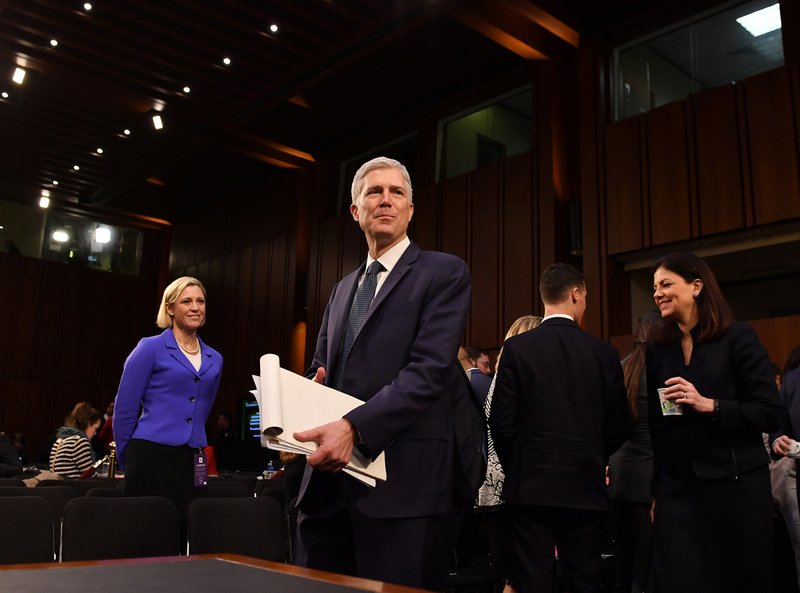WASHINGTON — Republicans invoked the "nuclear option" in the Senate on Thursday, unilaterally rewriting the chamber's rules to allow President Donald Trump's nominee to ascend to the Supreme Court.
Democrats objected until the end, but their efforts to block Judge Neil Gorsuch failed. Lawmakers of both parties bemoaned the long-term implications for the Senate, the court and the country.
"We will sadly point to today as a turning point in the history of the Senate and the Supreme Court," said Minority Leader Chuck Schumer of New York.
First, Democrats mounted a filibuster in an effort to block Gorsuch by denying him the 60 votes needed to advance to a final vote. Then, Republican Majority Leader Mitch McConnell of Kentucky raised a point of order, suggesting that Supreme Court nominees should not be subjected to a 60-vote threshold but instead a simple majority in the 100-member Senate.
McConnell was overruled but appealed the ruling. And on that he prevailed on a 52-48 party line vote. The 60-vote filibuster requirement on Supreme Court nominees was effectively gone.
A final confirmation vote on Gorsuch is expected Friday, and he could then be sworn in in time to take his seat on the court later this month and hear the final cases of the term.
The rules change is known as the "nuclear option" because of its far-reaching implications.
McConnell accused Democrats of forcing his hand by trying to filibuster a highly qualified nominee in Gorsuch, 49, a 10-year veteran of the 10th U.S. Circuit Court of Appeals in Denver with a consistently conservative record. McConnell vowed that the rules change would block the Gorsuch filibuster, and all future ones, a change many lawmakers lamented could lead to an even more polarized Senate, court and country.
"This will be the first, and last, partisan filibuster of a Supreme Court nominee," McConnell declared. "This is the latest escalation in the left's never-ending judicial war, the most audacious yet, and it cannot and will not stand."
Supreme Court filibusters have been nearly unheard of in the Senate.
Democrats are upset over McConnell's decision last year to deny consideration to then-President Barack Obama's Supreme Court nominee, Judge Merrick Garland, who was ignored for the better part of a year by Senate Republicans after the death of Justice Antonin Scalia. Instead, McConnell kept Scalia's seat open, a calculation that is now paying off for Republicans and Trump, who will be able to claim the biggest victory of his presidency to date if Gorsuch is confirmed as expected.
"We believe that what Republicans did to Merrick Garland was worse than a filibuster," Schumer said. "We didn't hear two words in the long speech of Sen. McConnell: Merrick Garland."
Check back with Arkansas Online for updates and read Friday's Arkansas Democrat-Gazette for full details.
